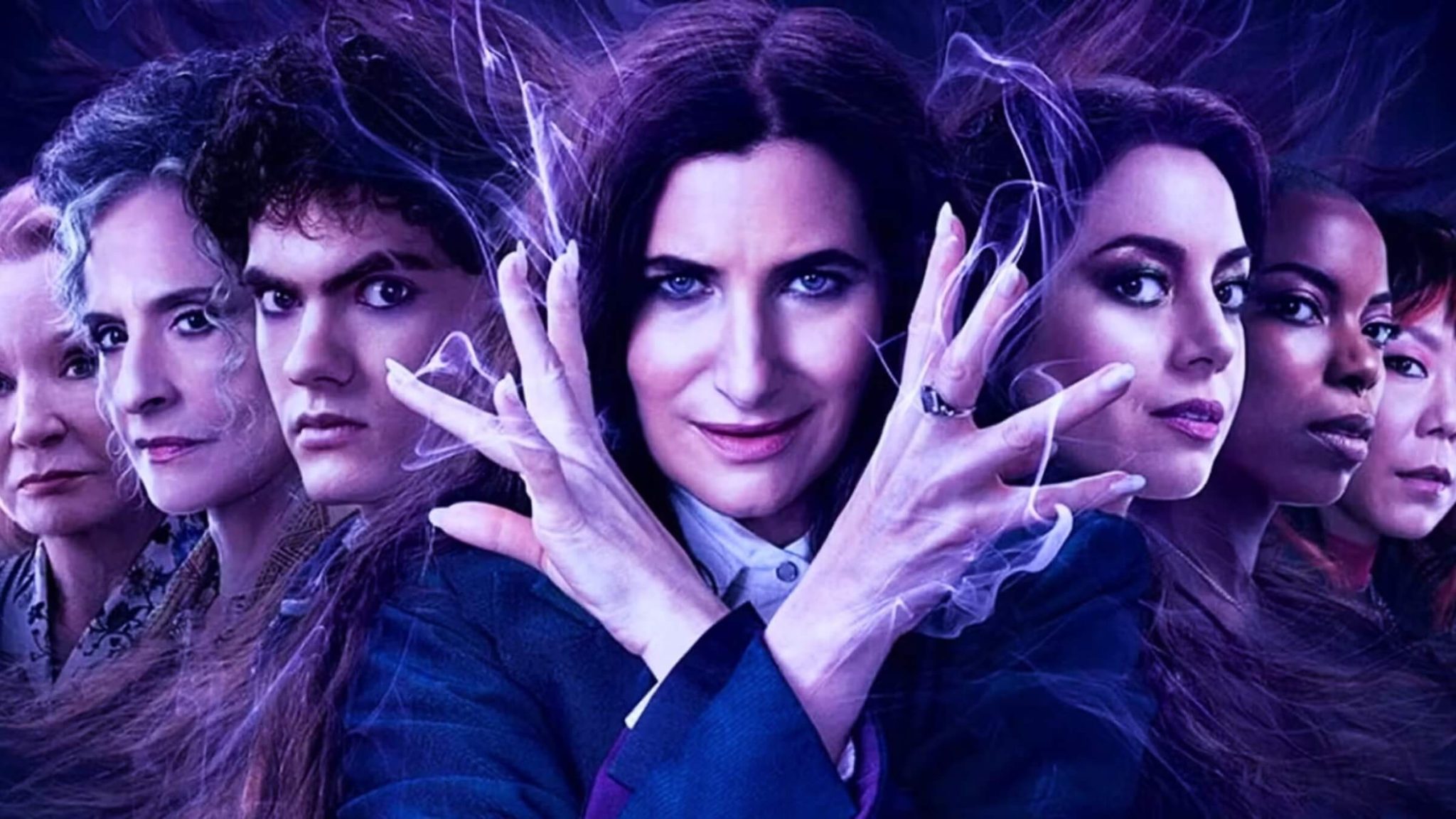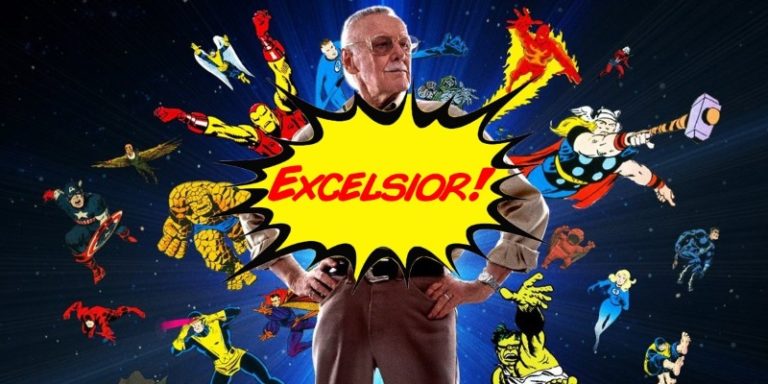
What screenwriting wisdom can we learn from the late, great storytelling master Stan Lee?
We're still mourning the loss of Stan Lee, an iconic storyteller that created many of the 20th and 21st Century versions of mythology — superheroes. He collaborated with other Marvel figures like Jack Kirby and Steve Ditko to create modern mythical characters like Spider-Man, the X-Men, Iron Man, Thor, the Hulk, the Fantastic Four, Black Panther, Daredevil, Doctor Strange, Scarlet Witch, and Ant-Man. For most of those characters, he was the driving force behind their conception.
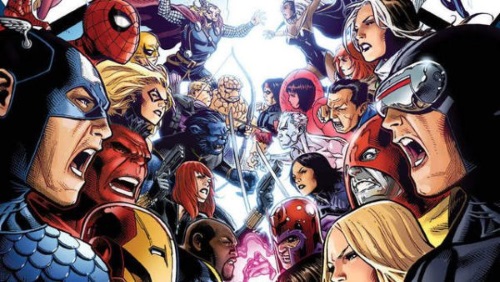
As a storyteller, Stan changed how superhero stories were told. With him, it was less about action and fights and more about character development and compelling stories. He was a leading force in diversity within the comic book realm.
On November 12th, 2018, Stan passed away at the age of 95.
His face was familiar to Marvel Cinematic Universe fans worldwide, having cameoed in all of those movies. His voice is perhaps his most notable attribute, having narrated the likes of Spider-Man and His Amazing Friends and other Marvel animated cartoons.
In celebration of his life and work, here we feature seventeen of his best quotes about writing and apply them to screenwriting through our own elaboration.
1. "If you are interested in what you do, that keeps you going!"
When you choose a career, it has to be for the right reasons. Too many people think that screenwriting is an easy lottery-type paycheck. They read the trades and screenwriting books that mention six-figure and seven-figure paychecks. They read about the "overnight success stories" (there is no such thing).
But if you're not genuinely invested into writing cinematic stories, you're going to find it very difficult to keep that engine churning. Why? Because rejection is the nature of the film and television industry, especially when it comes to screenwriting. And if you aren't completely invested in this trade, you're going to lose that necessary drive to keep you going.
Secondly, these wise words apply to what you choose to write. If you're chasing a trend because it's popular and it's what everyone seems to be buying in Hollywood, you're going to lose the will to write. You have to choose subjects, genres, and characters that you're interested in.
2. "If you wanna be a writer, keep writing."
Those "overnight successes" we mentioned? Those are nothing more than media catchphrases that make people read articles. Almost every "overnight success" is years in the making with plenty of failed attempts and rejection.
If you want to be a screenwriter, you need to keep writing — despite what will surely be multiple years of near hits, rejection, and silence. One script isn't going to be enough. You have to keep writing. And when you keep writing, you're honing your craft and creating your own voice.
That's what makes you a writer.
3. "I’m happiest when I’m working. If I’m not working, I feel like I’m wasting my time."
You'll really know that you're a true writer when you feel strange about not writing.
Writers write. That's what we do. Others can try it out and walk away from it easily when things don't go their way. True writers can't do anything but write.
It's a calling. It's an internal flame that can't be extinguished.
4. "I’m sort of a pressure writer. If somebody says, 'Stan, write something,' and I have to have it by tomorrow morning, I’ll just sit down, and I’ll write it. It always seems to come to me. But I’m better doing a rushed job because if it isn’t something that’s due quickly, I won’t work on it until it becomes almost an emergency and then I’ll do it."
Deadlines push you. They're necessary. And if you can't handle the pressure of a deadline and write amazing material in a very constricted timeframe, you better choose a different path.
You need to train yourself to be ready such deadlines. You can't simply wait and see how you'll react. So challenge yourself. Set seemingly unrealistic deadlines for your next scripts and hold yourself accountable. You'll only be doing your future self a favor if and when those writing gigs finally start coming your way.
Read ScreenCraft's Are You Truly Prepared for Success as a Screenwriter?
5. "The more you read, the better you’re going to become as a storyteller."
It's a misconception that the primary way to evolve as a writer is to write.
To truly evolve, you have to broaden your storytelling horizon. Read books. Read plays. Watch movies and television series. All writers and storytellers — be it cinematic, literary, or from the stage — help each other evolve. We inspire each other. We open doors for each other. And we explore doors that others introduced but didn't fully venture through.
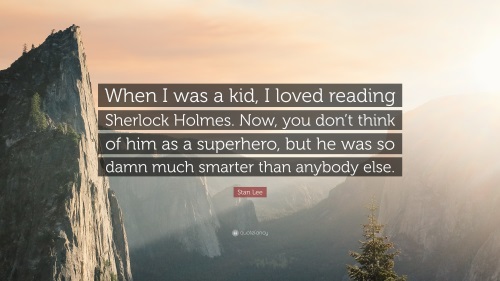
The more you read, the better you'll be as a storyteller.
6. "Most people say, 'I can’t wait to retire so I can play golf,' or go yachting or whatever they do. Well, if I was playing golf, I would want that to finish so I could go and dream up a new TV show."
Again, it's all about the drive. You have to need to do it.
7. "To my way of thinking, whether it’s a superhero movie or a romance or a comedy or whatever, the most important thing is you’ve got to care about the characters. You’ve got to understand the characters, and you’ve got to be interested. If the characters are interesting, you’re half-way home."
Stan created some of the best characters we'll ever know.
Spider-Man isn't just about a superhero that fights crime. It's about a teenage boy struggling with his identity and trying to find a place in the world.

X-Men isn't about a bunch of superheroes saving the day. It's about a diverse group of characters that are different from everyone else. They want to be understood and accepted. And yes, they just happen to use their unique powers to defend the human race.

Characters are everything. If you're writing an action film, it's not enough to just have a good guy fighting bad guys. If you're writing a horror film, it's not enough to have characters screaming and jumping at scary bumps in the night.
Make the characters interesting.
8. "I thought it would be fun to take the kind of character that nobody would like, none of our readers would like, and shove him down their throats and make them like him."
The worst advice that seems to be a staple in studio notes and script coverage is, "The protagonist needs to be more likable." Far from it.
Look at the character of Wolverine. He's not a very likable guy a majority of the time. Even in the latest incarnation, Logan, the title character (a.k.a. Wolverine) spends most of the film rejecting the insistence of helping this little girl in need.
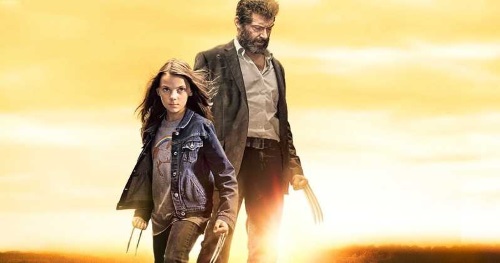
Iron Man/Tony Stark is an arrogant egomaniac — but he's one of our favorite characters.

Don't worry about making your characters likable. You can still choose to root for a character that you don't necessarily like. It's often best to present the audience with something more interesting than likable.
9. "There’s never a time when I’m not working."
Writing isn't about typing or pen-to-paper. We do most of our writing during our day jobs or going through our day-to-day routines. Your creative mind should always be in play.
You're always writing — even when you're asleep.
10. "If you’re writing about a character, if he’s a powerful character, unless you give him vulnerability I don’t think he’ll be as interesting to the reader."
Some arch villains aren't always that compelling. They're usually pure evil. But when you look at a character like Magneto, you'll find that there's such a vulnerability to him. There's depth. He has a history with Charles Xavier. He has an even deeper history rooted in the Holocaust.
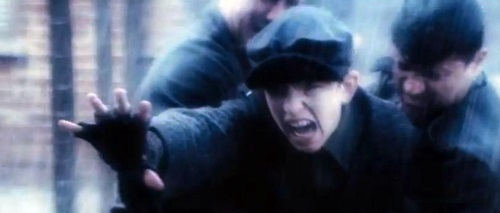
Even in Creed 2, we enjoy the villains of the film (Drago and his son) because they are vulnerable. The father is dealing with the shame of losing to Rocky, which caused him to lose everything. The son is dealing with his father's shamed legacy, as well as his mother not wanting to be a part of his life. They are the best villains or antagonists since Apollo Creed in the Rocky and Creed franchises because of that.
11. "I see myself in everything I write. All the good guys are me."
The best way to write great characters is to inject yourself within them — in big or small ways.
When you can live through those characters eyes and relate to what they are supposed to be feeling, the characters really write themselves because they are partly you.
12. "I always wrote for myself. I figured I'm not that different from other people. If there's a story I like a lot, there's got to be others with similar tastes."
Write what makes you laugh. Write what scares you. Write what makes you cheer. Write what makes you feel a certain emotion. That's the only way you can truly write with the idea of making a connection with someone.
You can't expect to know what makes others laugh, cry, scream, or cheer. Instead, write for yourself. There are billions of people on this planet. Hundreds of millions of them watch movies. The odds of connecting with someone similar to you are in your favor tenfold.
13. "No matter what you write, it’s a matter of putting words in a certain order so that the reader will be interested in what you’re writing."
Screenplays are cinematic. You can't just write scenes and dialogue to move a plot along. It has to be pop. It has to be cinematic. You have to capture the audience's interest by crafting story structure that is compelling and engaging.
Read ScreenCraft's Why Screenwriters Should Think Like Film Editors!
14. "My first thought is always 'What can I do that hasn’t been done, story-wise? What will this character’s objective be, his motivation, his weakness, how can I make an audience care about this guy?' That’s where the fun comes in."
You always have to be pushing the envelope. That's what it takes to get noticed in the film and television industry. Chasing trends or writing your version of what has already been done isn't going to get you anywhere.
Hollywood wants scripts that stand out and offer audiences something new. Yes, it can still be familiar, but you have to create that hybrid of familiar but different.
And the true fun behind writing is asking those key questions that define the character's struggles, the story's conflicts, and the audience's investment in both.
15. "You just have to think up an interesting character and an interesting problem, which it seems as though that character will never be able to solve, or a hurdle that he or she will never be able to overcome, and then you find a clever way for the hero to overcome it at the end."
Stan was the master at conceptualizing characters and concepts. And in the end, it's often more simple than you'd think. Create an interesting character and pose an equally interesting problem which they have to solve or deal with, and overcome it or succumb to it. Conflict, conflict, conflict.
16. "I had fun with all these characters because I literally knew where they lived, as well as what their personalities were. All that was left for me to do was make up the villains, which was even more fun than making up the heroes."
Know your characters. Know how they would react to any given circumstance. Know where they are from. Know what scares them most. Know what makes them happy.
It's not enough to just put a cardboard character into a situation. For the audience to really feel that these characters are living and breathing, you need to live in their shoes as you write.
And then, yes, have even more fun creating those that are going up against them.
17. 'You know, my motto is 'Excelsior.' That’s an old word that means 'upward and onward to greater glory.'"
Stan's catchword tells us always to be moving forward in our pursuits of glory. Never let anything drag you down to a full stop. Never let rejection pull you back.
And this word is now bittersweet after the passing of a legend. Stan has moved upward and onward to greater glory. He'll be missed, but never forgotten.
Thanks for the characters and stories, Stan. They will live on forever. And so will your spirit.
Special Note From Ken: I had the great fortune of meeting Stan Lee briefly during my days at Sony Studios. He rolled up in a Rolls Royce and welcomed me with that signature voice I grew up listening to on Saturday mornings. He always had a smile, and he was always full of energy. He will be missed.
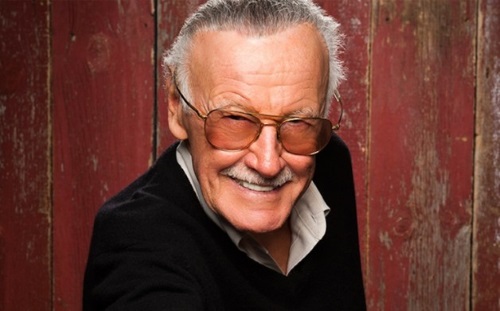
Ken Miyamoto has worked in the film industry for nearly two decades, most notably as a studio liaison for Sony Studios and then as a script reader and story analyst for Sony Pictures.
He has many studio meetings under his belt as a produced screenwriter, meeting with the likes of Sony, Dreamworks, Universal, Disney, Warner Brothers, as well as many production and management companies. He has had a previous development deal with Lionsgate, as well as multiple writing assignments, including the produced miniseries Blackout, starring Anne Heche, Sean Patrick Flanery, Billy Zane, James Brolin, Haylie Duff, Brian Bloom, Eric La Salle, and Bruce Boxleitner. Follow Ken on Twitter @KenMovies
For all the latest ScreenCraft news and updates, follow us on Twitter, Facebook, and Instagram.
Tags
Get Our Screenwriting Newsletter!
Get weekly writing inspiration delivered to your inbox - including industry news, popular articles, and more!


























